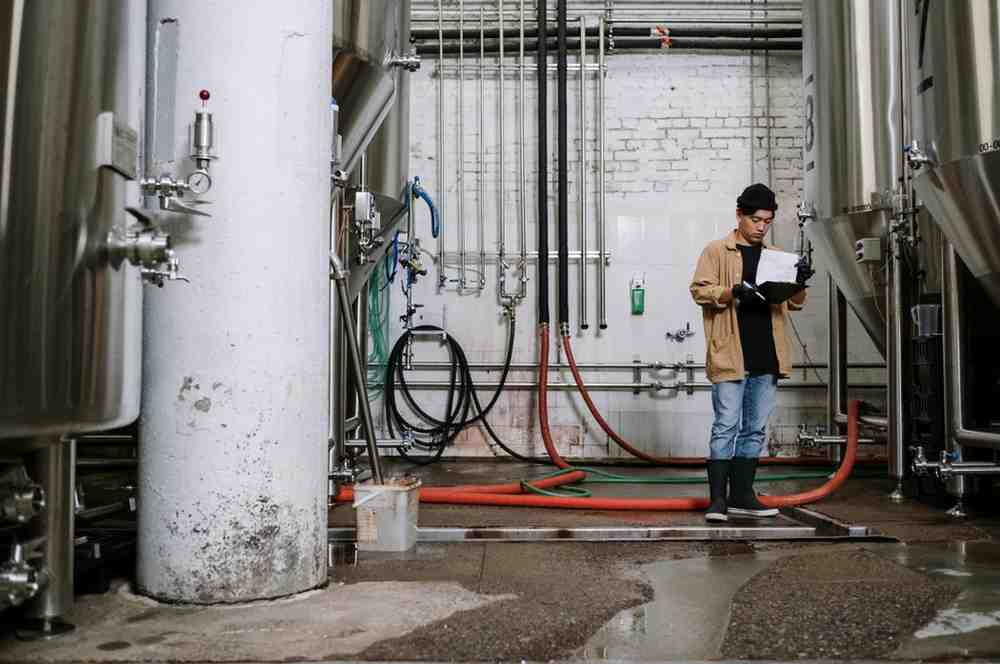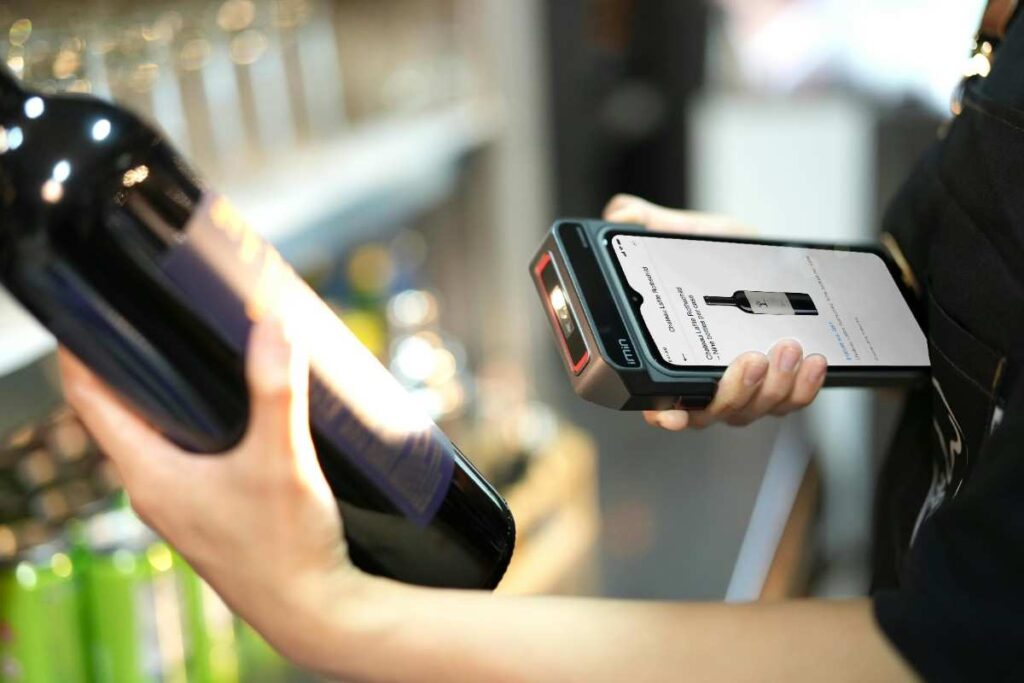Introduction: Fermenting a Future in Innovation
Alcohol Technology is the fascinating field that applies science and engineering to the production, processing, and quality enhancement of alcoholic beverages, from craft beers to fine spirits. It’s a dynamic discipline blending chemistry, microbiology, and technology to create beverages that delight palates while ensuring safety and sustainability. Whether you aspire to become a brewmaster, distiller, fermentation scientist, or quality control specialist, Alcohol Technology offers a fulfilling career with cultural and economic impact. This article will guide you through the essentials of Alcohol Technology, from its core principles to the skills and courses needed to excel. Moreover, it will highlight how Aime Connect’s education portal can support your journey with tailored resources. So, if you’re ready to craft the future of beverages, let’s explore Alcohol Technology.
Decoding Alcohol Technology: What Is It All About?
At its core, Alcohol Technology involves the scientific and technical processes behind the production of alcoholic beverages, including brewing, distilling, and winemaking. It encompasses areas like fermentation science, microbiology, sensory analysis, and process engineering, addressing challenges such as optimizing flavor profiles, ensuring product consistency, or reducing environmental impact. For instance, you might develop a new craft beer recipe or improve distillation for a smoother whiskey. Additionally, it employs techniques like yeast culturing, gas chromatography, and quality testing to maintain standards. Modern Alcohol Technology integrates advanced tools, such as automated brewing systems and sustainability practices, to innovate. Furthermore, it fosters creativity and precision. By pursuing Alcohol Technology, you’re not just making drinks—you’re blending art with science.

Charting Your Course: How to Become an Alcohol Technology Professional
To become an Alcohol Technology professional, you need a blend of education, practical experience, and a passion for beverage craftsmanship. Start with a high school education strong in chemistry, biology, and mathematics, followed by a bachelor’s degree in Food Technology, Fermentation Science, Chemical Engineering, or a related field like Microbiology. Advancing to a Master’s or Ph.D. in Food Science or Fermentation Technology is recommended for roles in research, academia, or advanced product development. Practical experience through internships at breweries, distilleries, or wineries is crucial. Additionally, certifications like Certified Brewmaster, Cicerone, or HACCP (Hazard Analysis Critical Control Point) enhance credibility. Networking through beverage industry conferences or platforms like Aime Connect opens opportunities. By combining education, training, and connections, you’ll build a clear path to an alcohol technology career.
Skills That Brew Success: What You Need to Succeed
To thrive in Alcohol Technology, you need a robust skill set blending technical, analytical, and sensory abilities. Proficiency in fermentation processes, microbial analysis, and quality control techniques is essential for producing safe and high-quality beverages. Moreover, strong analytical skills, including chemical and sensory analysis, ensure flavor consistency and product safety. Problem-solving and critical thinking address challenges like optimizing fermentation efficiency or reducing waste. Additionally, familiarity with tools like brewing software, chromatography systems, or sensory evaluation protocols enhances production capabilities. Adaptability keeps you aligned with trends like low-alcohol beverages or sustainable brewing. Communication skills convey technical findings to teams or market products to consumers. By honing these skills, you’ll become a dynamic professional ready to innovate in the beverage industry.
Fueling Your Beverage Journey: Recommended Alcohol Technology Courses
Aime Connect offers a range of Alcohol Technology-related courses to support your aspirations. For beginners, introductory courses in fermentation science cover yeast biology, brewing basics, and distillation principles. If you’re seeking specialization, programs in advanced brewing, distillery operations, or sensory science dive into topics like craft beer formulation or whiskey aging. Additionally, courses in beverage data analytics teach you to leverage technology for process optimization, a growing trend. For leadership roles, modules in beverage industry management or regulatory compliance align with career goals. Each course blends theory with practical tools like virtual brewing simulations, ensuring readiness. Explore Aime Connect’s portal for expert-led programs tailored to your Alcohol Technology journey.
Career Horizons: Job Scope and Placement in Alcohol Technology
Alcohol Technology offers diverse career paths across beverage production, research, quality assurance, and entrepreneurship. Roles like brewmaster, distiller, food technologist, or quality control manager are in demand as the global beverage industry grows. Moreover, emerging fields like non-alcoholic beverages and sustainable production create exciting niches. With an Alcohol Technology qualification, you can work in breweries, distilleries, wineries, or beverage research institutes, with competitive salaries and global opportunities. Aime Connect enhances your employability through placement support, connecting you with top employers. Whether starting as a production assistant or aiming for a Chief Beverage Scientist role, Alcohol Technology promises a vibrant career.
Global Opportunities: Best Countries for Alcohol Technology Careers
Certain countries stand out as Alcohol Technology hubs due to their rich beverage traditions and advanced industries. The United States, with its thriving craft beer and spirits sectors, excels in innovation and production. Similarly, Germany, renowned for its brewing heritage, leads in beer technology and quality standards. Scotland, a global hub for whiskey, supports roles in distilling and aging. Additionally, Australia’s growing wine and craft beverage industries foster opportunities in research and sustainability. These countries offer competitive salaries, cutting-edge facilities, and global recognition. Aime Connect’s globally relevant courses prepare you for certifications valued in these top markets.
Time to Ferment: Duration of Alcohol Technology Courses
The duration of Alcohol Technology programs varies by level. A bachelor’s degree in Food Technology or a related field typically takes three to four years, combining theoretical study and lab work. A Master’s in Fermentation Science or Food Technology spans one to two years, focusing on specialized research. Doctoral programs, like a Ph.D., take three to five years, including advanced projects and dissertation work. Supplementary certifications, like brewing technology or food safety, require three to six months. Aime Connect offers flexible preparatory courses (one to six months) for foundational skills or specialized topics like craft distilling. Accelerated programs cater to professionals balancing commitments. By choosing a course that aligns with your goals, you’ll efficiently launch your Alcohol Technology career.
Learning Your Way: Online vs. Offline Alcohol Technology Courses
Choosing between online and offline Alcohol Technology courses depends on your needs and career stage. Online courses, available through Aime Connect, offer flexibility, ideal for preparatory students or professionals seeking certifications, with access to recorded lectures and virtual lab simulations. Conversely, offline bachelor’s, master’s, or doctoral programs, offered by universities, provide hands-on training through brewery labs and industry internships, critical for core education. However, supplementary offline courses may require fixed schedules and travel. Online learning integrates tools like virtual fermentation models, ensuring practical exposure. For preparatory and supplementary studies, online courses balance convenience and quality, especially with Aime Connect’s innovative digital platform.
Aime Connect’s Advantage: Special Features for Your Success
Aime Connect transforms Alcohol Technology education with features tailored to your scientific and creative ambitions. Firstly, personalized learning paths ensure courses align with your career goals, whether entering a bachelor’s program or advancing with a master’s or doctorate. Additionally, interactive tools like virtual brewing labs and sensory analysis exercises bridge theory and practice. You’ll also benefit from expert mentorship, with food technologists and brewmasters guiding your progress. Furthermore, Aime Connect offers placement support, connecting you with top breweries, distilleries, and research institutes. The platform’s community forums foster collaboration, linking you with peers and mentors. Many features, like beverage innovation webinars and introductory resources, are free. Visit https://aimeconnect.com to discover how Aime Connect empowers your Alcohol Technology journey.
Conclusion: Your Beverage Legacy Awaits
A career in Alcohol Technology is a profound commitment to crafting exceptional beverages, advancing sustainability, and enriching global culinary culture through scientific innovation. From mastering critical skills to seizing international opportunities, this field offers a path to impactful leadership. With Aime Connect’s cutting-edge courses and dedicated support, you’re equipped to excel in this vibrant domain. Whether you choose online flexibility for preparatory studies or offline immersion for hands-on training, your success begins with the right education. So, embrace the challenge, nurture your passion, and let Alcohol Technology shape a rewarding future. Sign up today and transform your career with Aime Connect.
Thank you. Signup and Enjoy Free Special Features from Aime Education Portal – Login to Our Portal: https://www.aimeconnect.com



